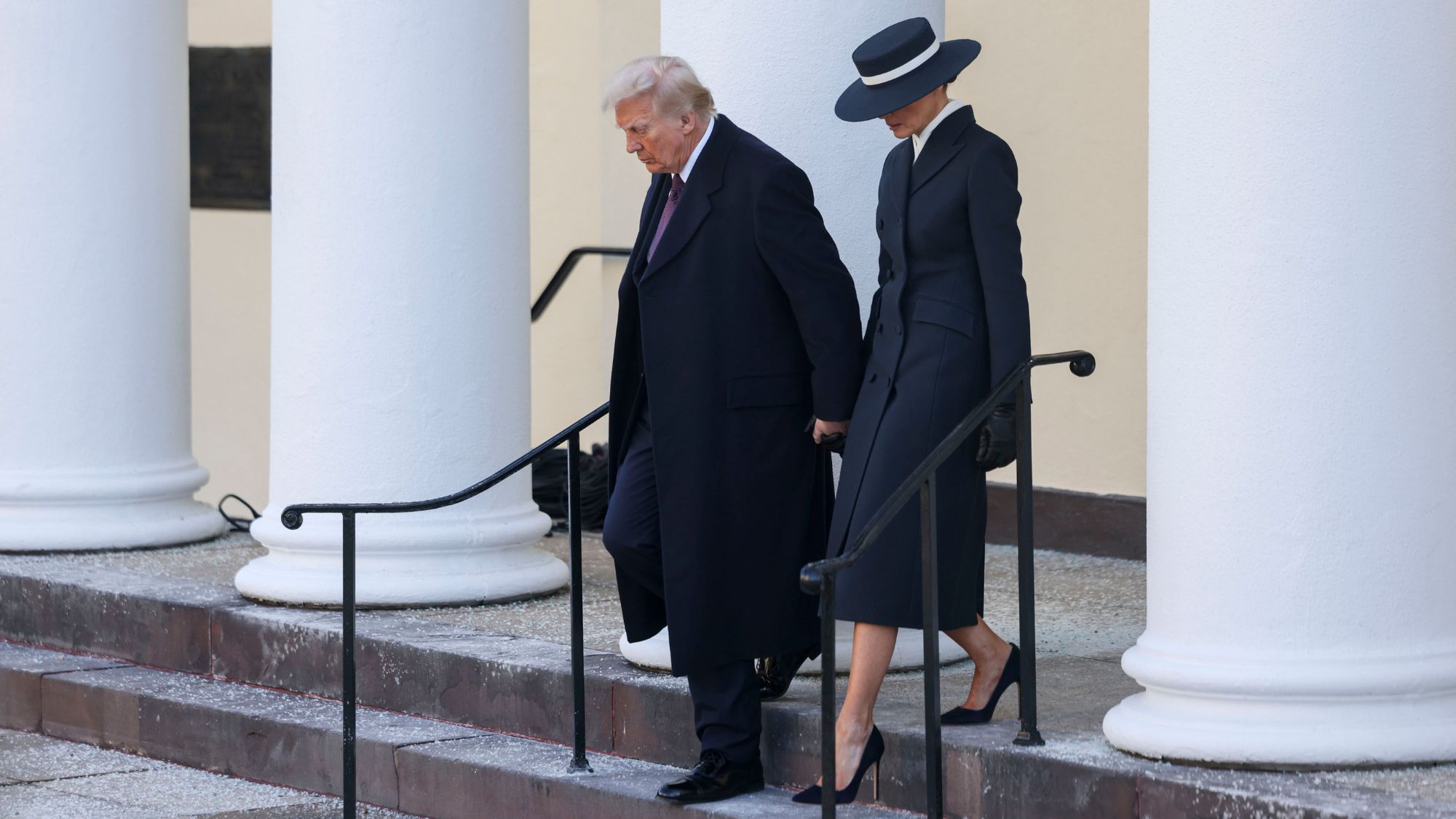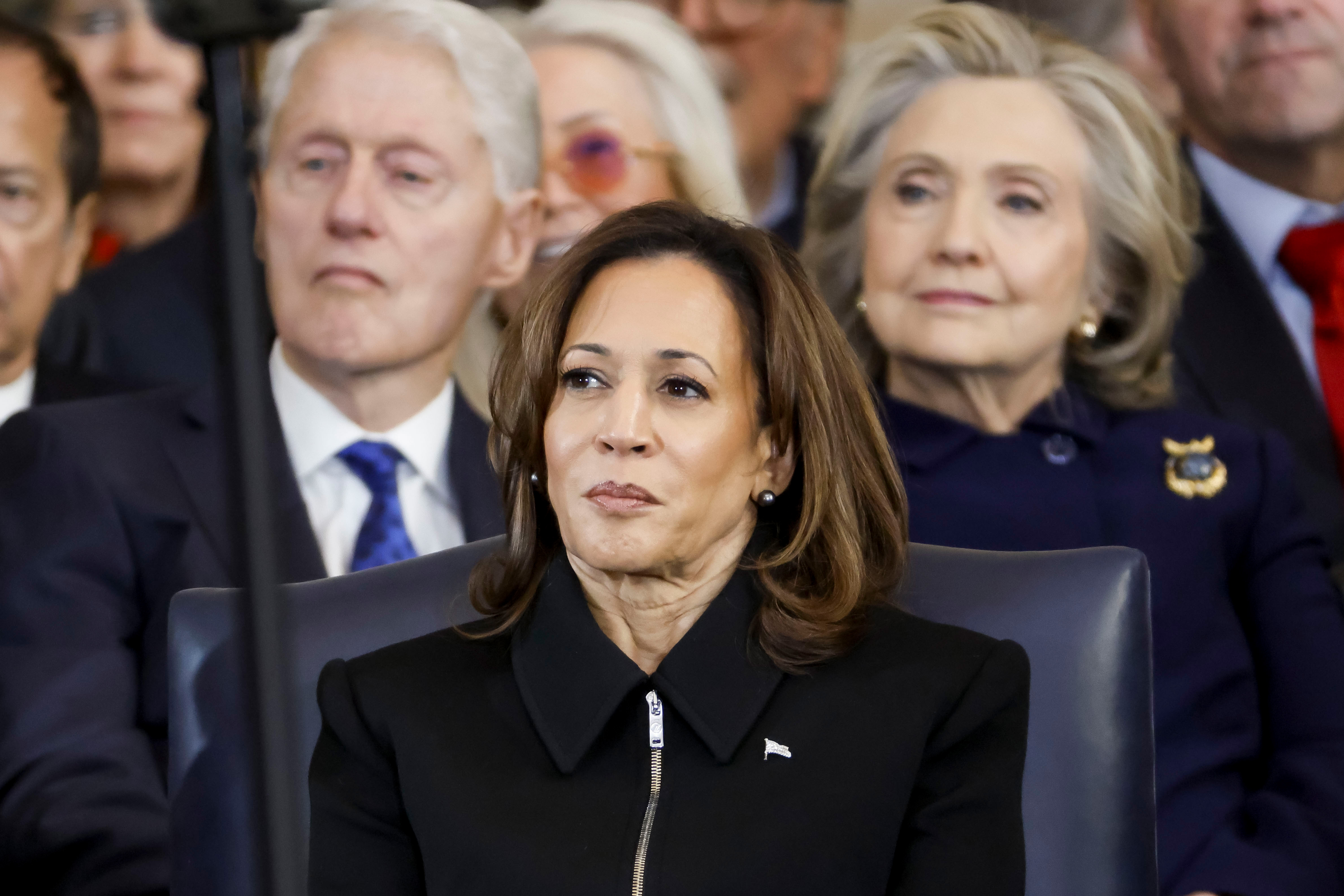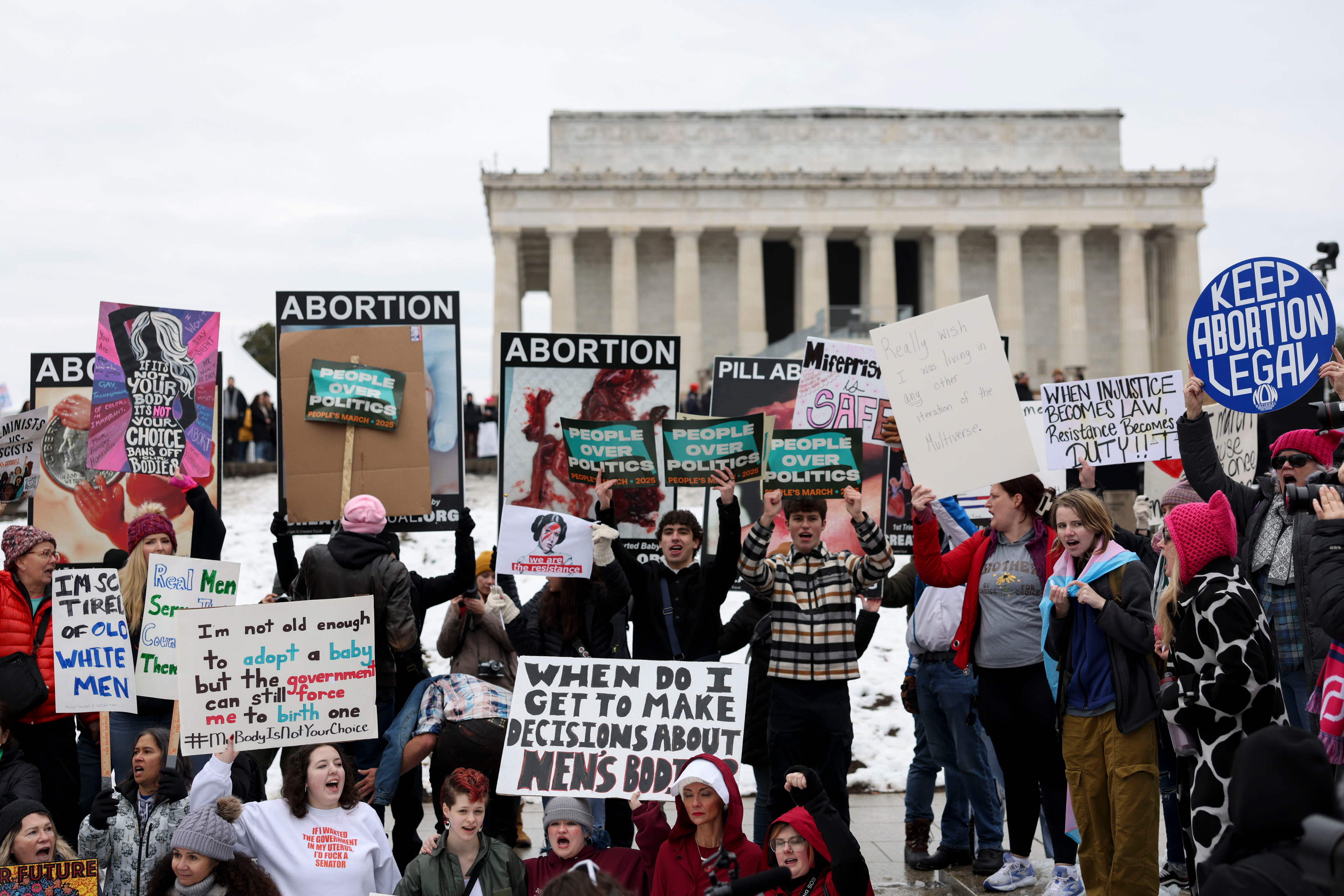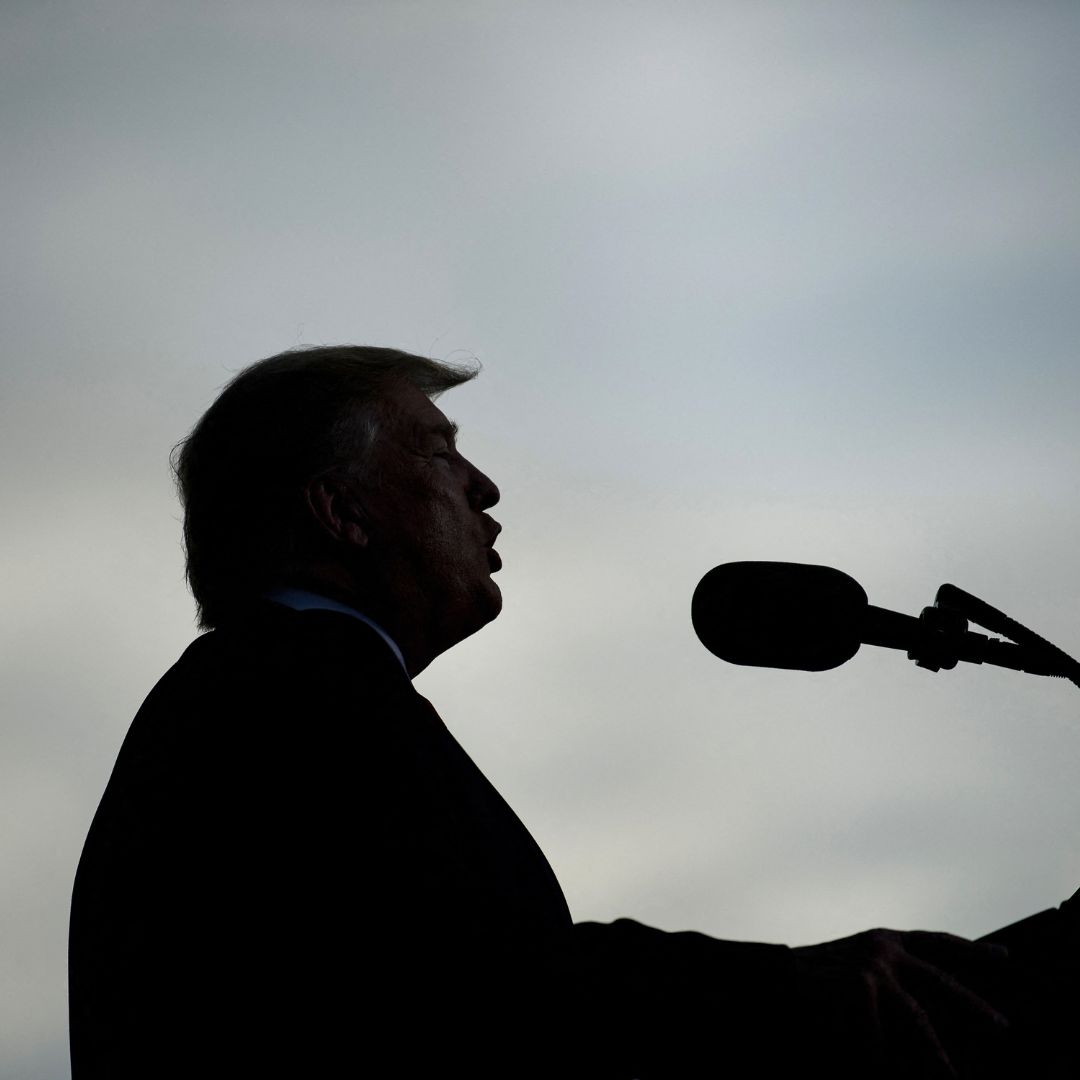Trump is President again—Here’s what that might mean for women and minorities
From reproductive rights to gender equality, Donald Trump’s appointment will have huge implications for women and minorities.

- Reproductive Rights and Health Care
- Funding for Women’s Health Services
- Healthcare Access
- Mental Health and Domestic Support
- Sexual Harassment
- Violence Against Women and Girls
- The Impact on People of Colour
- LQBTQ+ Rights
- Equal Pay and Workplace Discrimination
- Taxes
- Childcare and Family Leave
- Criminal Justice Reform
- Women in Leadership
- In Summary

Today, America has sworn in Donald Trump, a man who holds 34 felony convictions, as the 47th President—again.
Trump, already the first former president to be convicted of a felony, has just become the first convicted felon to be elected president.

Donald Trump takes office for his second term as the 47th president of the United States
People across the globe have voiced their outrage while others have shown their support. Women on both sides of the political spectrum have been left grappling with the realisation that a man who a jury found liable for the sexual assault of E Jean Carroll (and a judge declared Carroll’s claim to be “substantially true”) is set to become president.

Former US Vice President Kamala Harris during the 60th presidential inauguration
Despite women voting primarily for Kamala Harris (53% to Trump’s 46%), Trump did benefit from narrow gains with both men and women. He also managed to maintain his support among white women (a little over half supported him, which tracks with 2020). The biggest boost, though, came in the form of young male voters who predominantly voted for Trump, which speaks to the growing gender divide and led to some women joining the radical 4B movement.

Demonstrators near the Lincoln Memorial reflecting pool during The People's March ahead of the 60th presidential inauguration in Washington, DC, US, on Saturday, Jan. 18, 2025.
The effect of Donald Trump’s last presidency on women was marked by both regression and some support for traditional values. While his administration did not actively pursue major progress on gender equality, it did reinforce conservative positions on issues such as abortion, workplace discrimination, and sexual harassment, which had negative consequences for many women. So what’s next?
The implications of another Donald Trump presidency for women are far-reaching and unlikely to stay confined to American borders. From health care and reproductive rights to economic opportunity, workplace equality, and protections against harassment and discrimination, Donald Trump’s appointment will impact all corners of society and women are likely to again be at the forefront of policy changes.
Here’s a breakdown of how his presidency might affect women and minorities.
Marie Claire Newsletter
Celebrity news, beauty, fashion advice, and fascinating features, delivered straight to your inbox!
Healthcare
Reproductive Rights and Health Care
During his first term, Trump appointed three conservative Supreme Court justices — including alleged sex offender Brett Kavanaugh — which shifted the court in ways that ultimately led to the reversal of Roe v. Wade. This decision removed federal protection for abortion rights, leaving states to regulate or ban abortion. His return to the presidency will likely mean a continued emphasis on anti-abortion policies.
Funding for Women’s Health Services
Trump previously reallocated funds away from organisations that provide abortions, like Planned Parenthood, which affected broader women’s health services, including screenings and contraception access. His return might reinforce similar funding policies.
Health Policies Beyond Reproductive Care
Healthcare Access
The Trump administration made attempts to dismantle the Affordable Care Act (ACA), which expanded coverage for many women, including maternity care and mental health services. Another Trump term might see additional challenges to ACA provisions, potentially affecting women’s healthcare coverage and affordability.
Mental Health and Domestic Support
With the economic and social impacts of COVID-19 still affecting many women, particularly those who left the workforce, advocates are pushing for mental health support and expanded social services. It is thought that there may be a limited federal emphasis on expanding these services under Trump.
Workplace Equality and Harassment Protections
Sexual Harassment
Trump’s administration introduced policies that redefined protections that changed how colleges handle sexual harassment cases, which advocates argued might discourage survivors from reporting incidents. Another term might continue to emphasise these policies, potentially impacting campus and workplace harassment protections.
You've got to deny, deny, deny and push back on these women. If you admit to anything and any culpability, then you're dead. …You've got to deny anything that's said about you. Never admit.
Donald Trump via Bob Woodward’s Fear: Trump in the White House
Violence Against Women and Girls
Trump’s administration allowed a key piece of legislation providing protections and resources for survivors of domestic violence and sexual assault, to expire before being reauthorised (with some limitations). This could potentially weaken protections and funding for programs supporting abuse survivors.
The Impact on People of Colour
Donald Trump’s policies, rhetoric, and actions often ignite debates about race, identity, and the state of civil rights in America. For many, his time in office marked a period of heightened racial tension, while for others, his approach to issues like immigration and law enforcement was seen as an attempt to safeguard national security and restore order. One of the most contentious areas of Trump’s presidency was his stance on immigration. His administration implemented a series of hardline policies that disproportionately affected people of colour.
Trump’s presidency had a significant and often negative impact on people of colour, exacerbating racial tensions, deepening inequalities, and enacting policies that disproportionately harmed minority communities. For many, his time in office marked a period of heightened anxiety, activism, and political mobilisation, as the fight for racial justice became more urgent than ever. While some of Trump’s supporters argued that his policies benefitted certain communities of colour, particularly in terms of economic growth and job creation, the overarching legacy of his presidency for people of colour is one of division, marginalisation, and resistance.
LQBTQ+ Rights
There are only two genders, male and female
Donald Trump, speaking at his inauguration address
During his first term, Trump banned transgender people from serving in the military. Throughout the campaign, Trump pushed a narrative that “Kamala’s for they/them. President Trump is for you,” and he spent around $21 million on ads tying Kamala Harris with LGBTQ+ equality and transgender rights. He pledged to introduce even more restrictive measures, which could put the Equality Act at risk. It is also highly probable that Trump’s rhetoric around anti-gender ideology will have wider social implications.
In his inaugural speech, Trump confirmed his government will recognise only two genders, male and female, saying: "As of today, it will henceforth be the official policy of the United States government that there are only two genders, male and female."
Equal Pay and Workplace Discrimination
Trump signed an executive order that rolled back the Obama-era rule requiring companies to disclose pay data by gender, race, and ethnicity, which was intended to address pay gaps. If Trump continues to reduce government oversight, addressing pay equity and workplace discrimination might be limited.
Women’s Financial Security
Taxes
Trump’s tax policies were widely beneficial to high-income earners but had mixed impacts on low- and middle-income women, many of whom work in caregiving, retail, and hospitality—sectors that were disproportionately affected by COVID-19. Further tax cuts could reduce funds available for social programs that many women, particularly single mothers, rely on.
Childcare and Family Leave
Trump’s administration advocated for limited paid family leave and childcare tax credits, but policy impacts were minimal. Women’s advocates argue that a stronger federal paid leave policy could benefit working women, particularly those balancing family and work responsibilities. However, another Trump presidency may continue to prioritise private solutions.
I like kids. I mean, I won’t do anything to take care of them. I’ll supply funds and she’ll take care of the kids. It’s not like I’m gonna be walking the kids down Central Park
Donald Trump via an interview with Howard Stern, 2005
Criminal Justice Reform
Trump did sign the First Step Act, a criminal justice reform bill, which had positive impacts on sentencing reforms and early releases. However, his tough-on-crime stance around law enforcement might not align with advocates’ calls for police reform in cases of domestic violence and sexual assault, where many seek a trauma-informed approach to law enforcement.
Women in Leadership
Trump’s previous cabinet had a relatively low proportion of women, and his policies did not emphasise gender diversity in leadership. Women in public office and corporate leadership could see less emphasis on representation and gender equity initiatives under another Trump term.
Women are really a lot different than portrayed. They are far worse than men, far more aggressive…
Donald Trump in The Art of the Comeback, 1997
In Summary
Women’s rights are likely to continue to be impacted and influenced by his policies, judicial appointments, and broader leadership style.
It is likely that another Trump presidency will have significant impacts on women, particularly in areas of reproductive rights, economic policy, workplace equality, and protections against violence.

Mischa Anouk Smith is the News and Features Editor of Marie Claire UK.
From personal essays to purpose-driven stories, reported studies, and interviews with celebrities like Rosie Huntington-Whiteley and designers including Dries Van Noten, Mischa has been featured in publications such as Refinery29, Stylist and Dazed. Her work explores what it means to be a woman today and sits at the intersection of culture and style. In the spirit of eclecticism, she has also written about NFTs, mental health and the rise of AI bands.
-
 Prince Harry's "proud" words about wife Meghan Markle are going viral
Prince Harry's "proud" words about wife Meghan Markle are going viralBy Jenny Proudfoot
-
 Sources have opened up about Timothée Chalamet and Kylie Jenner's "intense" start to the year
Sources have opened up about Timothée Chalamet and Kylie Jenner's "intense" start to the yearBy Jenny Proudfoot
-
 Two Hollywood actresses were offered the role of Carrie Bradshaw before Sarah Jessica Parker
Two Hollywood actresses were offered the role of Carrie Bradshaw before Sarah Jessica ParkerBy Jenny Proudfoot
